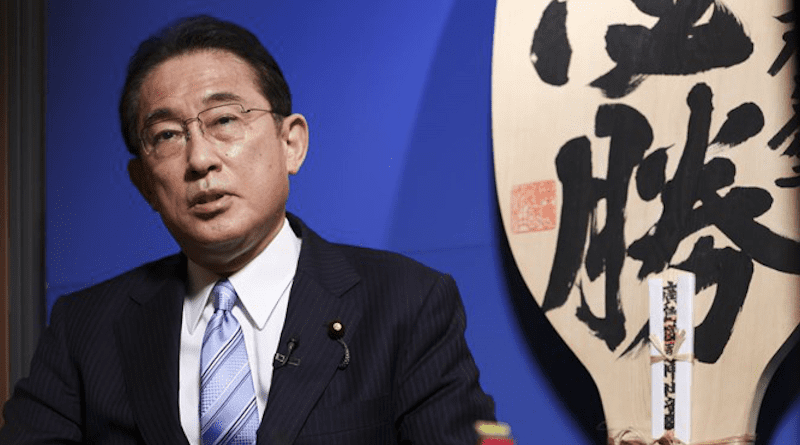Japan: Fumio Kishida Facing Nuclear Weapons Dilemma – OpEd
By Alan Callow*
The transfer of American nuclear technologies to Australia within the AUKUS pact sparked a discussion in Japanese society about the need to switch the fleet to nuclear engines and the development of nuclear technologies in general.
Despite the active militarization of the Japanese Self-Defense Forces, society still painfully perceives any mention of the word “nuclear”. The reaction is expectable mostly because the Japanese are the only people who have experienced the destructive power of weapons of mass destruction. What position will the new government take on this issue?
Kishida’s pre-election comments
October 4, 2021, Fumio Kishida was elected a new prime minister in Japan. During the race, the candidate avoided answering the question about the nuclear prospects of the Japanese fleet saying only about the need to improve the conditions of service of sailors.
Kishida’s uncertainty on such a sensitive issue is easily explained by his unwillingness to weaken its pre-election positions. However, as the first person, a politician will have to decide whether to develop nuclear military technologies.
Public pressure
The pacifist wing of the Japanese public dealt a preventive blow to the nuclear modernization of the Japanese army. An activist Setsuko Turlow suffered in the events of 1945 sent a letter to the newly elected Prime Minister of Japan calling for joining the Treaty on the Prohibition of Nuclear Weapons (TPNV). In this context, she also reminded the new leader of the pre-election promise to create a world without nuclear weapons.
Political support
The mayor of Hiroshima Prefecture Kazuimi Matsui supported the opinion of the activist. The official expressed the hope that the new government would become an observer at the conference of the parties to the UN treaty on the prohibition of nuclear weapons. In addition, Tokyo’s refusal to build nuclear submarines will enhance the image of the country often accused of unjustified militarization.
In addition Secretary General of the Confederation Atomic Bomb Survivors Tanaka Terumi called it reasonable to join TPNV to reduce regional tensions and optimize defense expenditure.
Kishida from Hiroshima
Moreover Fumio Kishida seems to share the opponent nuclear weapons position. Here is one subjective factor – the prime minister grew up in a family of politicians from Hiroshima prefecture. His nuclear disarmament plans let him gain popularity among the general population.
Indo-Pacific tensions
Nevertheless, public skepticism and the anti-nuclear background of Kishida go against the trend towards military opposition of the PRC in the Indo-Pacific region. In order to match the concept of US-Japanese deterrence of the PRC, Tokyo has easily amended the constitution and changed the military doctrine. So the decision to obtain and develop nuclear technologies would hardly be called unexpected.
Fumio Kishida came to power in a very difficult period. His victory is largely explained by his election promises and the people’s hope of stabilizing the internal and foreign policy situation. The nuclear issue can become the central theme of Kishida’s rule as its decision will determine Japan’s development vector for many years to come.
*Alan Callow, Philippine journalist covering Asia politics in general.

